Technological advancement and the progress made in modern building materials has led many Indian architects to ignore our age old building techniques and vernacular materials. In the race to build higher concrete structures and bigger glass cubes, designers overlook the context and the Indian climate they are building for. In an attempt to change this scenario, Smita and Habeeb Khan Architects, unveil their latest project in Nagpur, Jaidev College of Engineering. Envisioned as a new style, The Contemporary Vernacular Architecture, JD College of Engineering by SHK Architects, is a fine example of what traditional Indian Architecture could look like in modern times. It has been awarded the 2018 INTBAU Excellence Award by the UK based INTBAU (International Network for Traditional Building, Architecture and Urbanism) in the category ‘New Building’.
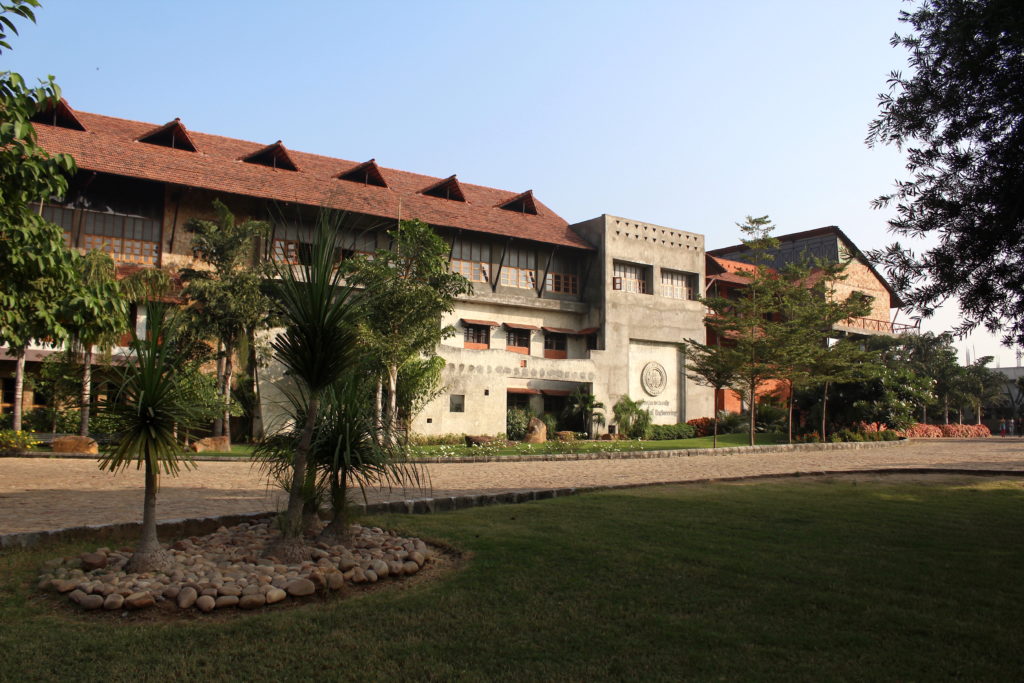
A simple yet elegant design, where form follows function, JD college channels our Indian architecture history not only in materials and building construction techniques, but also in planning principles and tiny details and artwork. Courtyard planning, paves the way for natural ventilation throughout the premises, keeping the inward facing classes cool in the unbearable Nagpur summers while also serving as a place for them to get together and connect. Baffle walls and vernacular materials which are locally sourced like sandstone, hand baked bricks, recycled and refurbished wood for fenestration help in continuing the vernacular harmony of the structure.
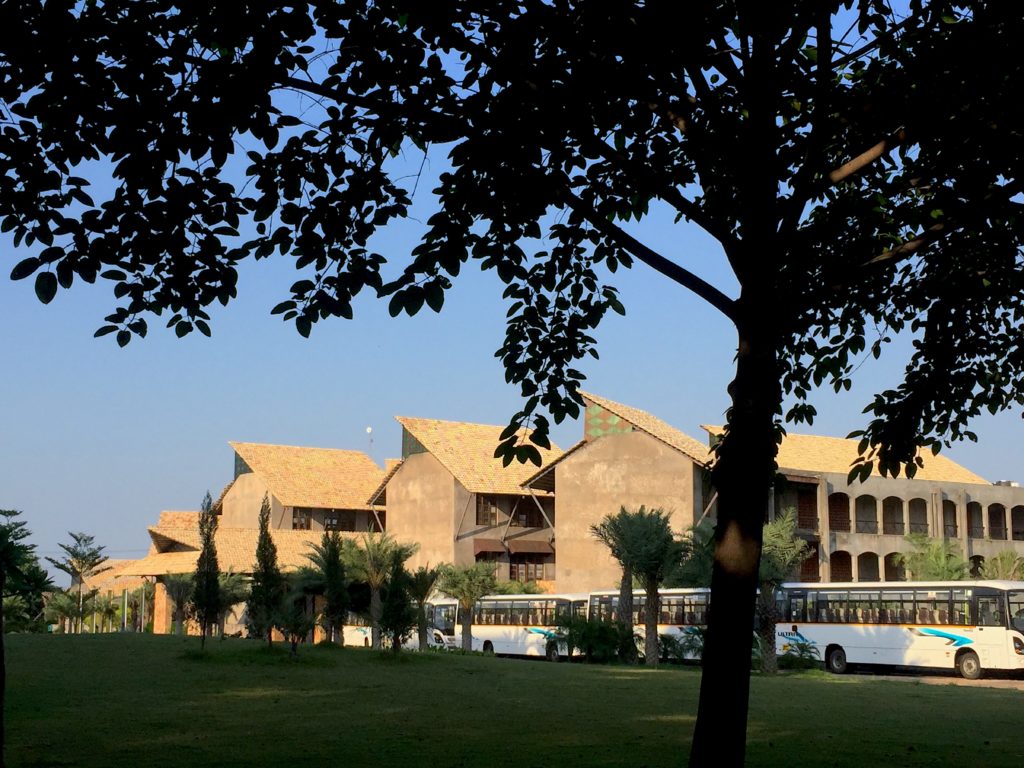
The architecture also heavily relies on re-use materials like wood, iron and clay tiles integrating Indian identity in each and every element of the built. Effective green and cost saving building techniques like stone slabs on girders as roofs, earthen clay tiles, chiseled stone masonry further unifies the modern design approach with old building practices, thus proving that concrete and glass isn’t and shouldn’t be the only way forward. The design of JD college, establishes a strong Indian identity in Nagpur, an architectural language of contextuality, identity & reconciliation-The contemporary vernacular. It also puts forth a burning question for the Indian design community – how much of the global influence and interference in Indian Architecture and design is actually doing us good?
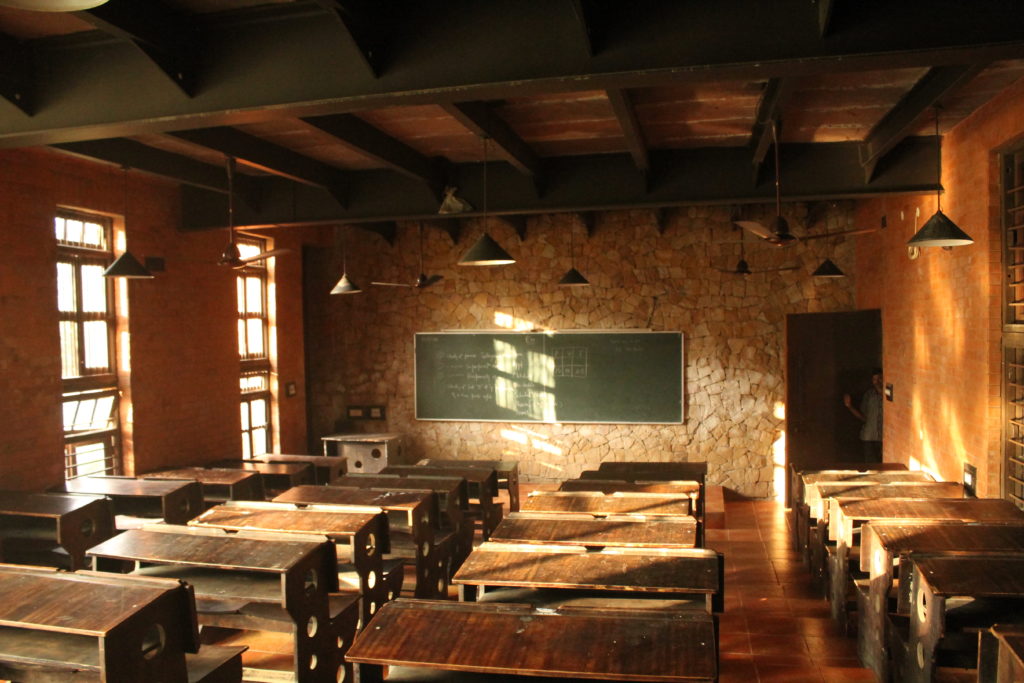
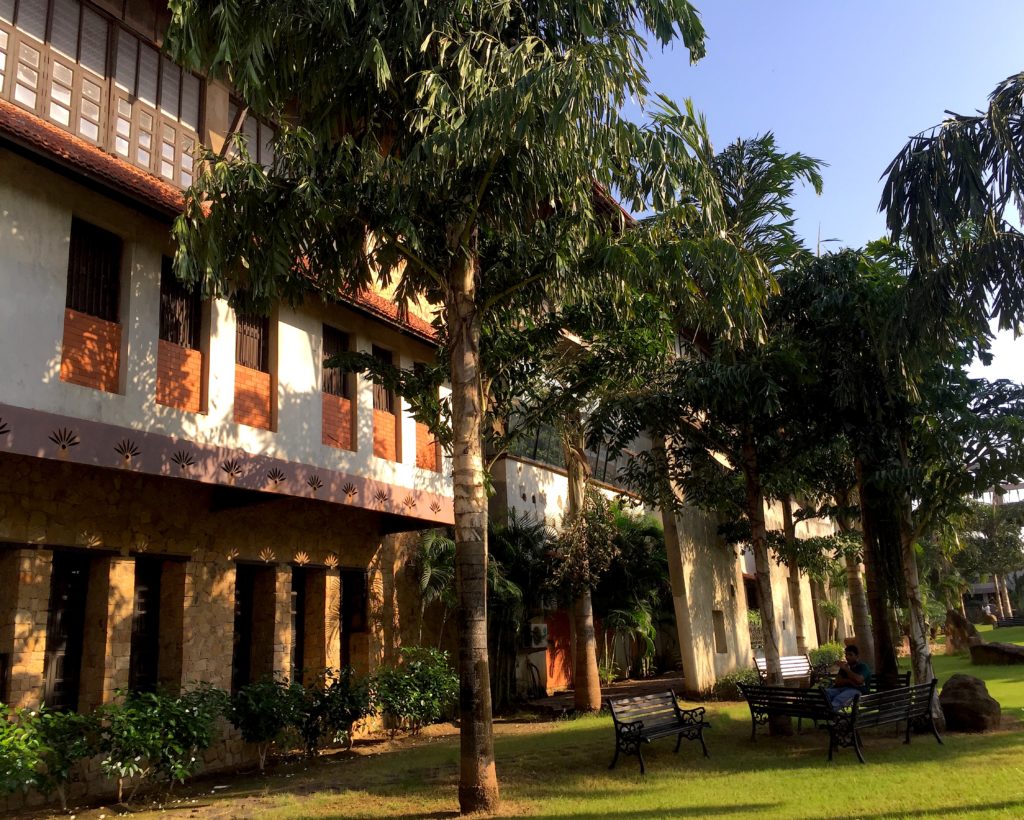
The challenge of creating a learning space with modern amenities and facilities yet also a space which is a callback to old Indian Architecture; a tribute to our vast knowledge resource on building construction and materials; was massive. The designers followed 10 rules in their approach to ensure the vernacular language flowed throughout the built form calling them the 10 commandments.
Ten Commandments:
- Continuum of Tradition
- Reinventing and reintroduction of traditional building techniques.
- Imaginative use of traditional space & volume
- Respect for local climate context & culture
- Innovation in finishes, materials & traditional building vocabulary
- Respecting nature, characteristics & limitations of natural materials & an ecological approach towards them.
- Respect & rejuvenation of local people & economy
- Respect for man & nature
- Non industrial building materials
- Recycle, Reuse
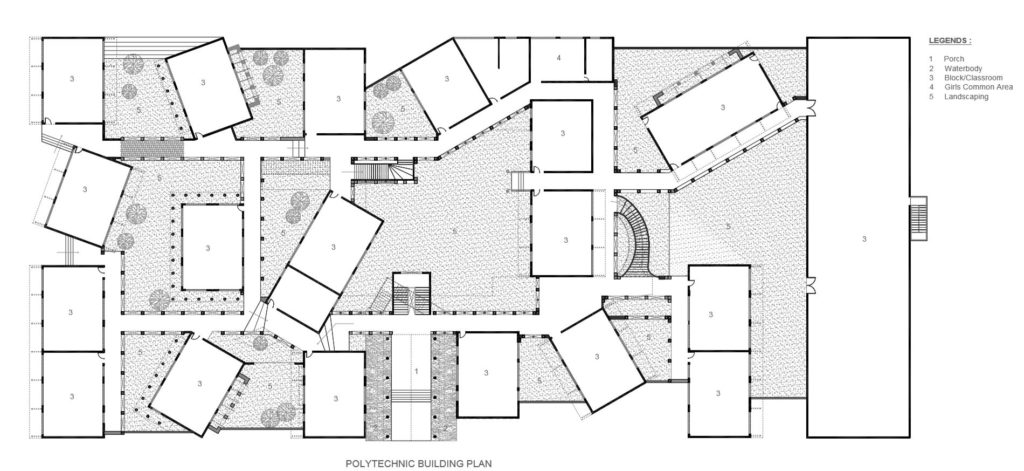
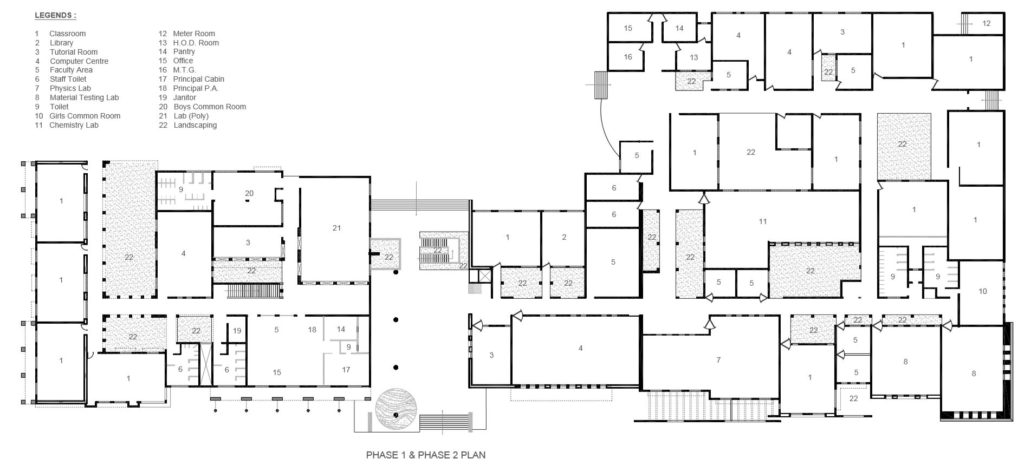
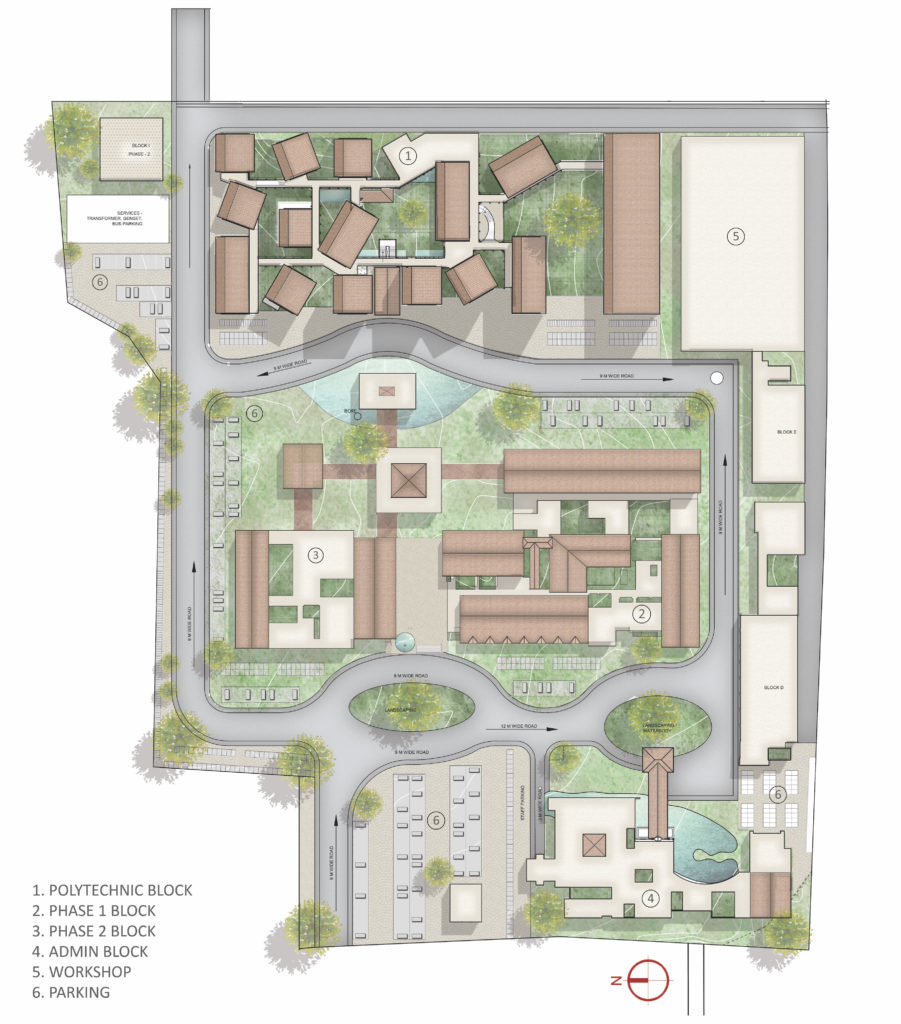
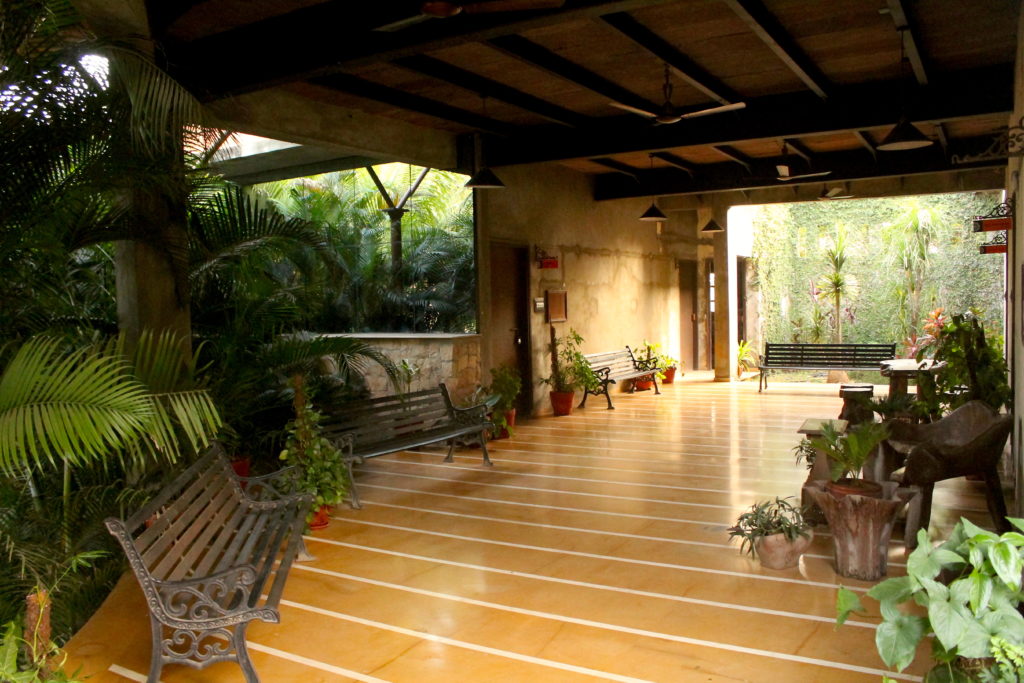
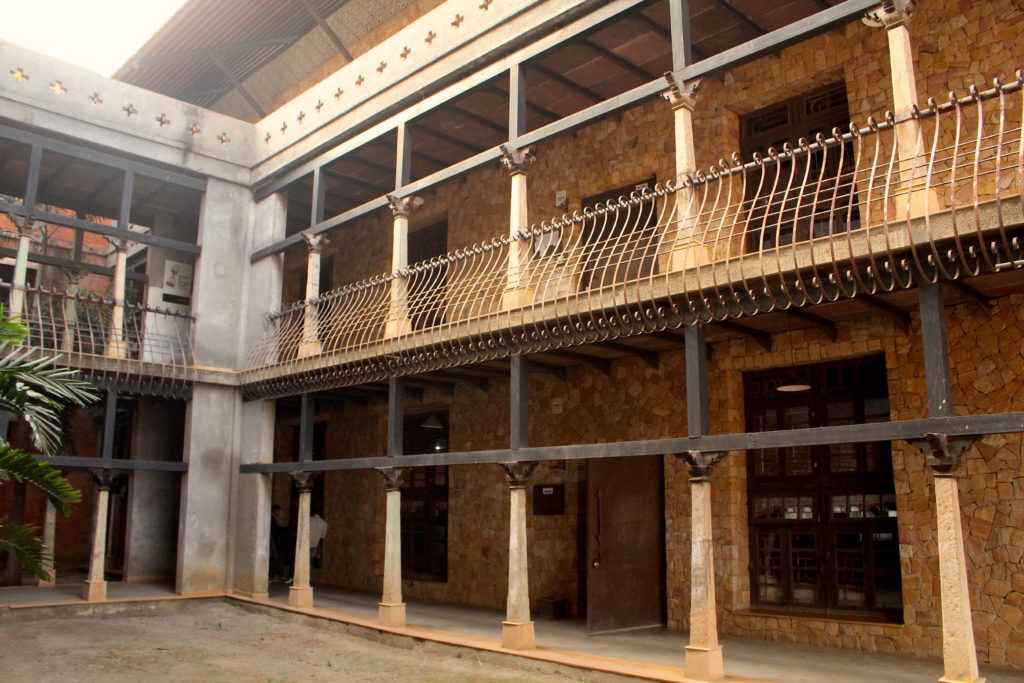
Colleges and universities, which should serve as a haven for knowledge and a place for youngsters to evolve, bond and learn, have somehow been reduced to sterile environments with uninspiring and plain boring architecture. JD College of Engineering, by contrast is designed to excite students, channel their inner creativity and incorporate a love for nature in the students. A lively atmosphere, bright colors and fresh details serve as conversation starters interspersed throughout the college, giving the students something new to discover every day. JD college is an attempt to connect the students to their roots, make them proud of their heritage while also sensitizing them to better architectural spaces.
The void between authentic Indian built forms and modern buildings cropping up in India is increasing. The reason? The inclination of contemporary architects towards materials and technologies being used in the west, thereby disrespecting the definitive architectural evolution in India and our vast resource of indigenous materials and green building approaches. This Copy and Paste mentality somehow leads to nondescript, banal and non-contextual built forms which do nothing for our climate or usage patterns. Hence, there is definitely a need to re-establish a responsive vocabulary to restore the chain of vernacular evolution of Indian Architecture.
SHK Architects, a leading architecture practice in Nagpur, led by Ar. Habeeb Khan and Ar. Smita Khan for over 30 years, have created a niche for themselves in environment conscious architecture. Drawing inspiration from nature and tradition, their signature style of architecture including Institutional, Industrial, public, hospitality buildings is inclined towards built environs which are sensitive, contextual, traditional albeit within a contemporary framework. With their main focus being sustainable development, SHK works towards erecting energy efficient buildings and interiors, aligning their designs with vernacular and tradition based architecture.
Their consistent philosophy of functional and aesthetic balance, imaginative use of space and volume, timeless design, innovation in finishes, materials and graphics, thoughtful use of budget and climate contextual design is distinctly visible in all of their acclaimed projects including PIADS (Priyadarshini Insitute of Architecture and Design Studies, Nagpur) and JD College of Engineering. Not only have the successful architecture couple won accolades for their stunning designs, they have also contributed to training young designers and spreading awareness for ecological and sustainable buildings through various talks, workshops and lectures. Ar. Habeeb Khan is the Design Chairman at PIADS while Ar. Smita Khan teaches at VNIT Architecture Department, and are always available for a deep dialogue on design, art and architecture with young designers and aspiring architects.
